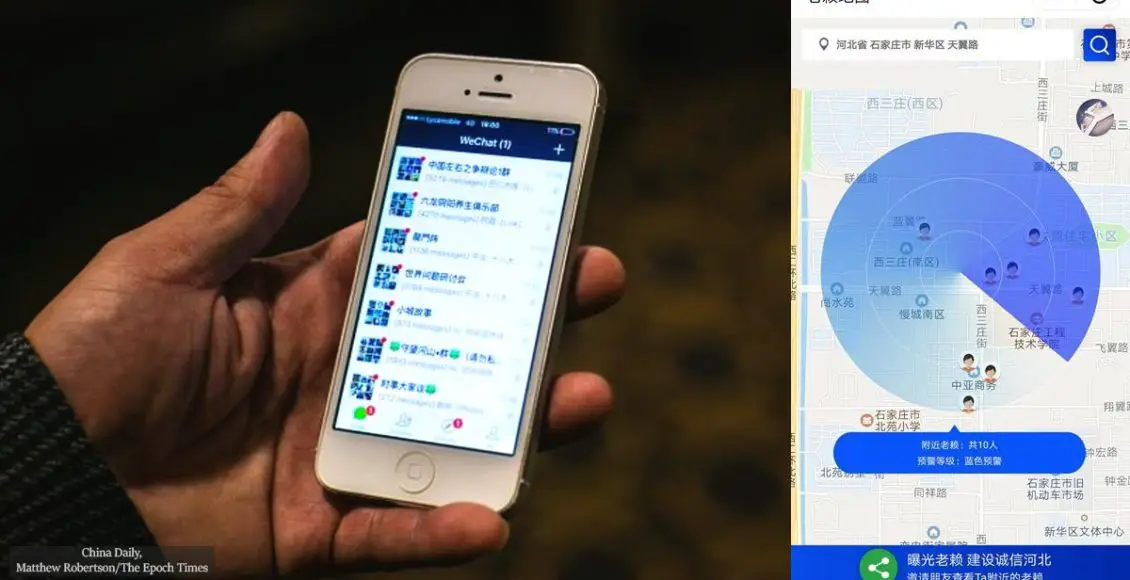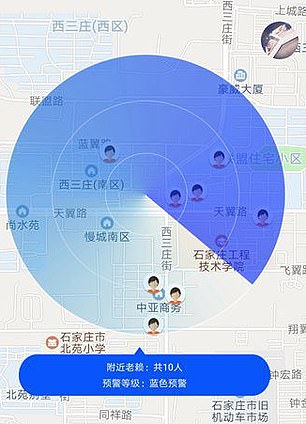China launches controversial app that notifies users when they are within 500 yards of someone in debt

China has now come up with an app that notifies its users when they are within 500 yards of a person in debt.
In addition, the app encourages people to report the ‘deadbeat’ if they seem capable of paying their dues.
A Chinese court in the province of Hebei introduced the WeChat program, literally named “map of deadbeat debtors,” according to China Daily (a media run by the state).
The court believes that the app gives an additional means to “enforce our rulings and create a socially credible environment.”
China trials 'Deadbeat Map' app to monitor citizens' debts as part of social credit score system Nicknamed the…
Posted by Social Media Stars on Friday, January 25, 2019
WeChat has become the most popular instant messaging app in China. The platform provides people with a map and on-screen radar which tracks “deadbeat debtors”, whose locations are precisely marked and pinpointed. The person’s personal information is revealed by a simple marker tap.
In addition, it alerts users with a flash when a debtor is near their area.
It remains unclear how much debt someone must be in to attract such a privacy invasion, what behavior is indicative of a person’s ability to pay debts, or how the app’s user can report a person they deem to be financially wasteful.
Currently, the app’s function is limited to the province of Hebei.

The Dystopian Social Credit System of China
Reminiscent of a futuristic sci-fi movie, the communist regime of China unveiled the app in the midst of a nationwide crackdown on lending, as the latest addition to its unnerving “social credit” system.
The social credit system is a massive ranking system that keeps track of the behavior of its people and assigns them abstract “social credit” scores.
The system is set to become mandatory from 2020. It will measure how trustworthy a person is by assessing their behavior on public transport, social media posts, what purchases they make, their ability to pay off debts, and so on. The exact details have not been laid out.
Currently, the system is divided – some are run by city councils, while others are run by private tech companies such as Alibaba.
Nonetheless, it has penalized more than 6000 people for not paying their taxes on time or acting inappropriately on public transport, banning them from making trips across the country by train or plane between the months of June and January, the Business Insider reported.
Other penalities include bans from jobs, decreased internet speeds, and even confiscation of animals.
Children of parents with low scores can be rejected from their desired universities.
In October of 2018, a non-Chinese journalist recorded an announcement made in English urging people not to misbehave on a train from Beijing to Shanghai, raising the question of whether visitors and tourists will eventually also be subjected to this system.
Here's a dystopian vision of the future: A real announcement I recorded on the Beijing-Shanghai bullet train. (I've subtitled it so you can watch in silence.) pic.twitter.com/ZoRWtdcSMy
— James O'Malley (@Psythor) October 29, 2018
What are your thoughts on China’s controversial Social Credit system? Let us know in the comment section and share this article if you have found it informative.

